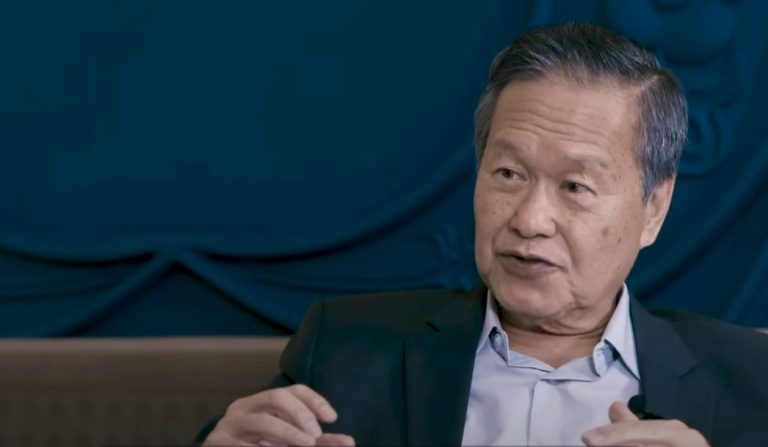The narrative of Tan Kin Lian is less like a corporate thriller and more like a subtly significant life that is continuously influenced by morals rather than conceit. At the astonishingly young age of 29, he was appointed CEO of NTUC Income. Over the ensuing three decades, there was a change that greatly enhanced Singaporeans’ access to insurance. The assets of NTUC Income increased from S$28 million to over S$17 billion under his leadership, a growth rate that few Asian CEOs could match without going public or reducing equity.
However, Tan has never revealed his personal wealth in public, even though he is the head of a cooperative worth billions of dollars. In addition to not having the material accoutrements typical of senior financial executives, his income, retirement benefits, and investments have never been included in mainstream rich lists. Financial analysts estimate his net worth in 2025 to be between S$8 million and S$15 million, which is modest by billionaire standards but extremely significant for someone who identifies as a public servant first and foremost. This estimate is based on his roles, business ventures, and real estate holdings.
Tan Kin Lian – Personal and Financial Overview
| Attribute | Information |
|---|---|
| Full Name | Tan Kin Lian |
| Date of Birth | 9 March 1948 |
| Nationality | Singaporean |
| Occupation | Businessman, Financial Educator, Former CEO of NTUC Income |
| Education | Raffles Institution |
| Political Activity | Presidential Candidate (2011, 2023), Former PAP Member |
| Leadership Role | CEO of NTUC Income (1977–2007) |
| Estimated Net Worth (2025) | Estimated between S$8 million and S$15 million (unofficial projection) |
| Known For | Ethical leadership, cooperative model, public financial advocacy |
He has always made it clear that profit was not his main driving force. Tan made it a point to travel in economy, even on lengthy flights, whereas many leaders choose to fly in business class and stay in opulent accommodations. In addition to being economical, his practice of eliminating operational excess at NTUC Income had symbolic resonance, bolstering confidence in a business that catered to regular families. His institution became a national standard for cooperative insurance thanks to his strategic discipline and thrift.
Tan has been extremely active since resigning in 2007. He provided educational resources to assist Singaporeans in making better financial decisions by founding the Financial Services Consumer Association (FISCA). He organized public protests and filed petitions on behalf of almost 1,000 people impacted by the Lehman Brothers minibond collapse, serving as a rallying point for those affected during the 2008 financial crisis. This was not merely a protest for the sake of protest; rather, it was a remarkably similar echo of his lifelong focus on consumer protection.
Tan positioned himself as a voice for the people rather than an influential member of the elite in his political endeavors, first in 2011 and then again in 2023. Rising living expenses, the closing pay gap between the public and private sectors, and the widening divide between the general public and policymakers were all openly criticized by him. Even though neither of his presidential campaigns succeeded, they confirmed his reputation as a steadfast opponent of undue privilege and an advocate for openness.
He was able to speak with credibility about inequality, particularly in the insurance industry, thanks to his economic background and in-depth knowledge of public sentiment. He openly expressed reservations about foreign control over national insurance capital during the 2023 Allianz acquisition bid for the successor company of NTUC Income. His frequent Facebook posts of insightful commentary struck a chord with a wide range of followers, many of whom continue to regard him as an impartial, reliable financial voice.
Tan demonstrated that his interest in financial systems extended beyond Singapore by making real estate investments in Forest City, Malaysia, and serving as an advisor to Indonesian insurers after retiring. Even though they are managed discreetly, these activities serve as the foundation for estimates of his present net worth. Even though not all of his assets are revealed, his sales of digital products, pension benefits, international real estate, and continuing consulting fees probably all steadily increase his base of income.
Recognizing the symbolic significance of Tan Kin Lian’s financial philosophy is also crucial. Tan’s economic modesty feels refreshingly grounded in a time when corporate leaders are frequently criticized for their excessive bonuses and growing pay disparities. Despite the board’s inclination toward privatization, he did not aim to use NTUC Income as a vehicle for it. Rather, he remained steadfast in his conviction that the cooperative model, in which policyholders receive a portion of the profits, was a socially beneficial framework that was especially advantageous in a society where financial instability was becoming more prevalent.
The public’s response to Tan varies. Some see him as a man of principles and respect his consistency. Others criticize his directness on social media or wonder if his traditional beliefs are still relevant in the current economic climate. Few, however, question his sincerity. More than just a style choice, Ong Teng Cheong, Singapore’s fifth president, represented trust, kinship, and shared values when he wore a red orchid tie that Tan had given him for his inauguration and photo shoot. Tan was more driven by contributions than money, as demonstrated by their partnership in starting charitable initiatives like the President’s Star Charity.


